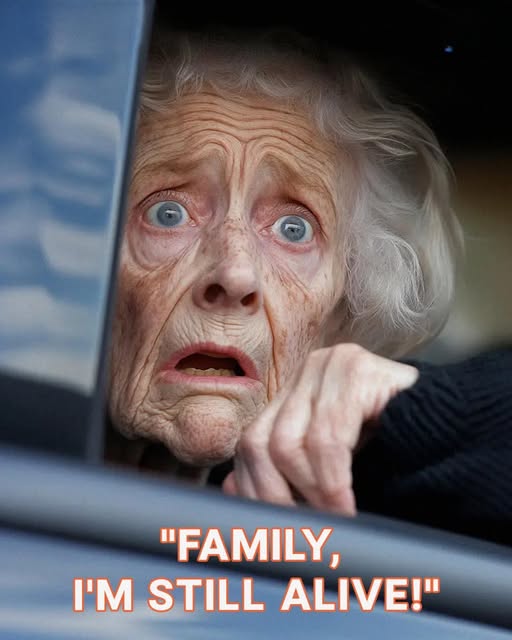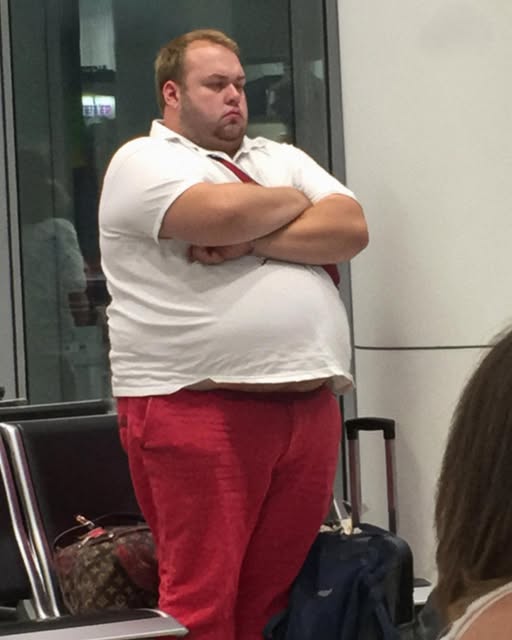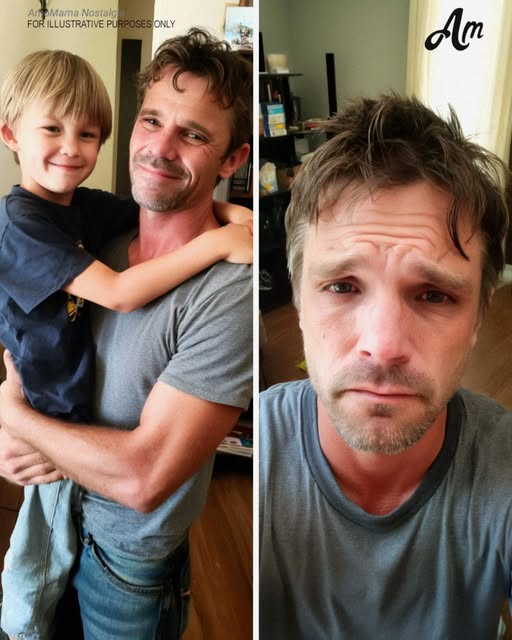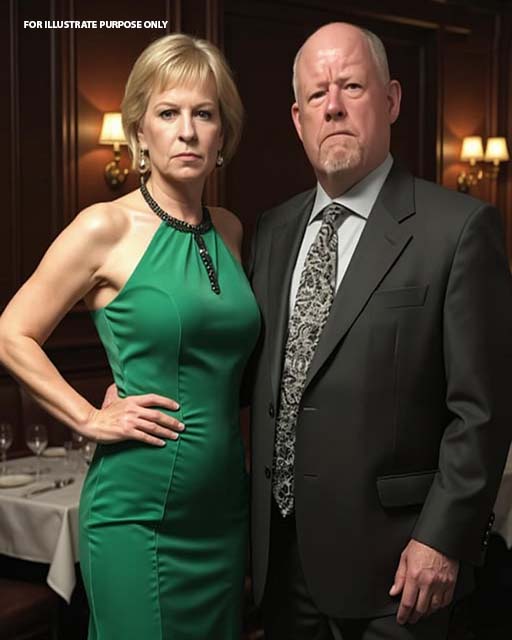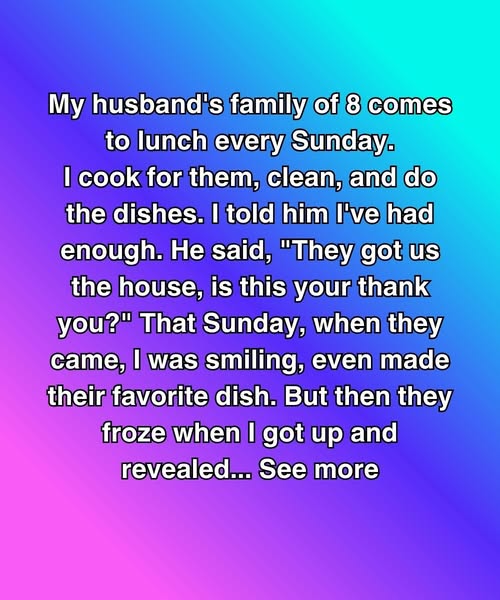Evelyn sat in the dim hush of the afternoon, the room warm with old light and the quiet breath of a ticking clock. The walls were lined with frames—birthday cakes with too many candles, crooked paper crowns, gap-toothed smiles, the lopsided tree from the lean Christmas. Every picture held the same truth: she had made a life for two children out of thin air and grit, after the day her husband didn’t come home.
From the hallway came voices, low at first and then clear enough to sting.
“I checked the shelters,” Alex said, as if reciting a grocery list. “State ones are full. Private homes are pricey—”
“—which I am not paying for,” Helen cut in, sharp as a snapped thread. “I’ve got a mortgage and two kids. Are you covering it?”
Evelyn pressed her fingers into the worn arms of her chair. They were not whispering. They were not asking. It was a discussion about logistics. About her. She was a problem to route around, not a person to include.
“What are we supposed to do?” Helen went on. “We can’t take care of her. We have our own families.”
The conversation ended with the dry hush of a phone screen locking. No one came in to ask how she felt. No one said goodnight.
She lay awake, watching the ceiling slowly surrender the last of the daylight. Once, when the children were small and money was smaller, she had gone without dinner three nights in a row so they could have milk for their cereal. She’d never told them. She had been strong. She would be strong now.
Morning arrived with footsteps at her door. Alex stood there wearing the strained face of someone delivering a bill.
“Mom,” he said, eyes slipping away. “It’s time to pack up.”
“The shelter?” she asked, and she hated that her voice trembled.
He nodded.
She folded the few clothes she needed and slid photographs between soft shirts—little paper windows to the only riches she owned. When she stepped outside, Helen’s car idled at the curb. No one made small talk on the drive. The world passed in a smear of bare trees and dirty snow, and the silence sat heavy as a stone.
When the car slowed, she opened her eyes and felt the ground tilt under her. They weren’t at a shelter. They were in front of gray metal gates and a field of stones.
“I’m still alive,” Evelyn said, half to herself, half to the wind.
“Come on,” Helen said, already walking. “We’re here for a reason.”
They followed gravel paths worn by feet and weather. Helen stopped and pointed at a small, time-scarred marker. The name was faint but the dates were not. Born and died this very day, many years ago.
“Emily,” Evelyn breathed. Her knees softened. She reached for the stone with fingers that remembered holding a weight that never drew a second breath.
“How could you not tell me?” Helen’s voice cracked with fury. “I had a twin and you hid it. All these years.”
“You were a baby,” Evelyn said. The words were flimsy, poor shelter against the storm. “It broke me to lose her. I couldn’t— I thought I was protecting you.”
“You didn’t think,” Helen snapped. “You never think we deserve the truth. You lie, and then you expect us to take care of you.”
Evelyn watched her daughter through a veil of water she refused to let fall. She had carried this sorrow alone because it felt kinder than handing it to a child. Seeing it now—twisted into proof of unworthiness—hurt more than the burial had.
“Get in the car,” Helen said. “We’re done here.”
They drove to a building with peeling paint and a sun-bleached sign. Inside, the air smelled like old dust and disinfectant. A woman at a desk slid a clipboard across without a smile. Papers changed hands. Keys were issued. A door opened on a narrow room with a narrow bed and a single window that let in tired light.
Evelyn sat on the edge of the mattress with her suitcase at her feet and folded her hands in her lap to stop the trembling. She had been many things in many rooms: a nurse in her own kitchen, a mediator between siblings, a birthday magician with cupcakes and dollar-store candles. In this room, she was a file in a drawer.
A knock broke the quiet. The door flew open.
“Grandma?”
Margaret stood there, hair loose from a hurried bun, cheeks flushed with cold and anger. She crossed the room in three strides and held Evelyn’s hands like something precious.
“I came as soon as I heard.” Her voice was soft and fierce at once. “You’re not staying here. I have a spare room. It’s small, but it’s yours if you want it.”
Evelyn tried to answer, but the relief swelled so fast it stole her breath. She nodded. “There’s something you should know,” she managed. “Your mother had a twin. Emily. She didn’t survive. I didn’t tell anyone. I thought I was sparing them.”
Margaret’s fingers tightened. “You carried that alone,” she said, eyes glossy. “You don’t have to anymore. Come home with me.”
Hours later, sunlight in a different window warmed a different bedspread. The room smelled of laundry detergent and cinnamon. A tapered lamp cast cozy light on a stack of paperbacks. Someone—Margaret—had placed a glass of water on the nightstand without making a fuss about it. Evelyn sat back against pillows that gave instead of resisted, and for the first time in months, her breath filled her lungs all the way.
Within weeks, the house began to sound like a life: the click of a kettle, the murmur of radio news, Margaret laughing in the kitchen at something on her phone and calling, “Come see this, Grandma!” A neighbor stopped by with a plant. A church friend dropped a casserole and stayed to set it on plates. When the doorbell rang one afternoon and she opened it to find Helen and Alex on the step wearing borrowed expressions of concern, Evelyn felt the old ache stir—and then pass.
“Mother,” Alex said, choosing the word like it might change the past. “We wanted to check on you.”
“Do you like it here?” Helen asked, eyes flicking over Margaret’s modest porch as if tallying what might be missing.
“I do,” Evelyn said. It surprised her how steady her voice was. “I am safe, and I am wanted. That’s enough.”
Silence pooled. Helen opened her mouth, then closed it. Alex checked his watch. They left with promises to call. The door closed on their perfume and impatience, and the house sighed back into itself.
Over tea that night, Evelyn told Margaret more about Emily. Not the facts—they were few and already carved in stone—but the soft things: how her father had chosen both names, how the nurse had knitted two hats and slipped one in Evelyn’s palm, how for years she had folded the tiny hat and put it away and taken it out and put it away again. Margaret listened the way some people pray, head bowed, hands still, heart wide.
“You did the best you knew,” she said when the telling was done. “That doesn’t excuse everything. But it explains it.”
Evelyn thought of long-ago winters when she had turned the pockets of her coat inside out to shake free enough coins for bread. Of nights she had sat on the edge of a child’s bed, rubbing little circles between the shoulder blades while a fever eased. Of the quiet rules she had written for herself: don’t burden them, don’t scare them, keep the worst of it out of view. She had failed and succeeded in a hundred ordinary ways. The ledger was messy. Love rarely balanced neatly.
Her hands steadied. She baked muffins the next morning—clumsy, glorious blueberry mounds that burst in the oven and made a sticky joy of the pan. Margaret declared them perfect and took two to the neighbor. Evelyn laughed, a sound she had not heard from herself in too long.
When the letters from Helen and Alex arrived—one brisk and practical, the other warm with concern edged in curiosity—Evelyn answered with grace and boundaries. She agreed to coffee in public places, to conversations that did not reroute toward budgets and burdens. She did not apologize for the room that smelled of cinnamon or for the plant that reached with greedy green toward the window. She stopped unspooling explanations no one had earned. Some calls went well; some did not. She slept anyway.
On a quiet Sunday afternoon, Margaret found an old photo album in a box Evelyn had not opened in years. Together, they slid the plastic back and freed the glossed rectangles from their crackling pockets. There was the cake with too many candles, the crooked paper crowns, the lopsided tree. There, too, a hospital room with bright curtains and just one hat on one tiny head. Margaret traced the image with a fingertip and kissed Evelyn’s temple without a word.
“Thank you,” Evelyn whispered. “For coming when you did.”
“Thank you for letting me,” Margaret said. “Family isn’t just who raises you. It’s who you choose to keep raising each other.”
Outside, the light changed; inside, the clock ticked on. Some days still pinched, and some memories still hurt. But the room was full of soft sounds and warm air and someone else’s footsteps moving toward the kettle. Evelyn closed her eyes and felt the quiet settle around her like a blanket. Not forgotten. Not a burden. Home.
